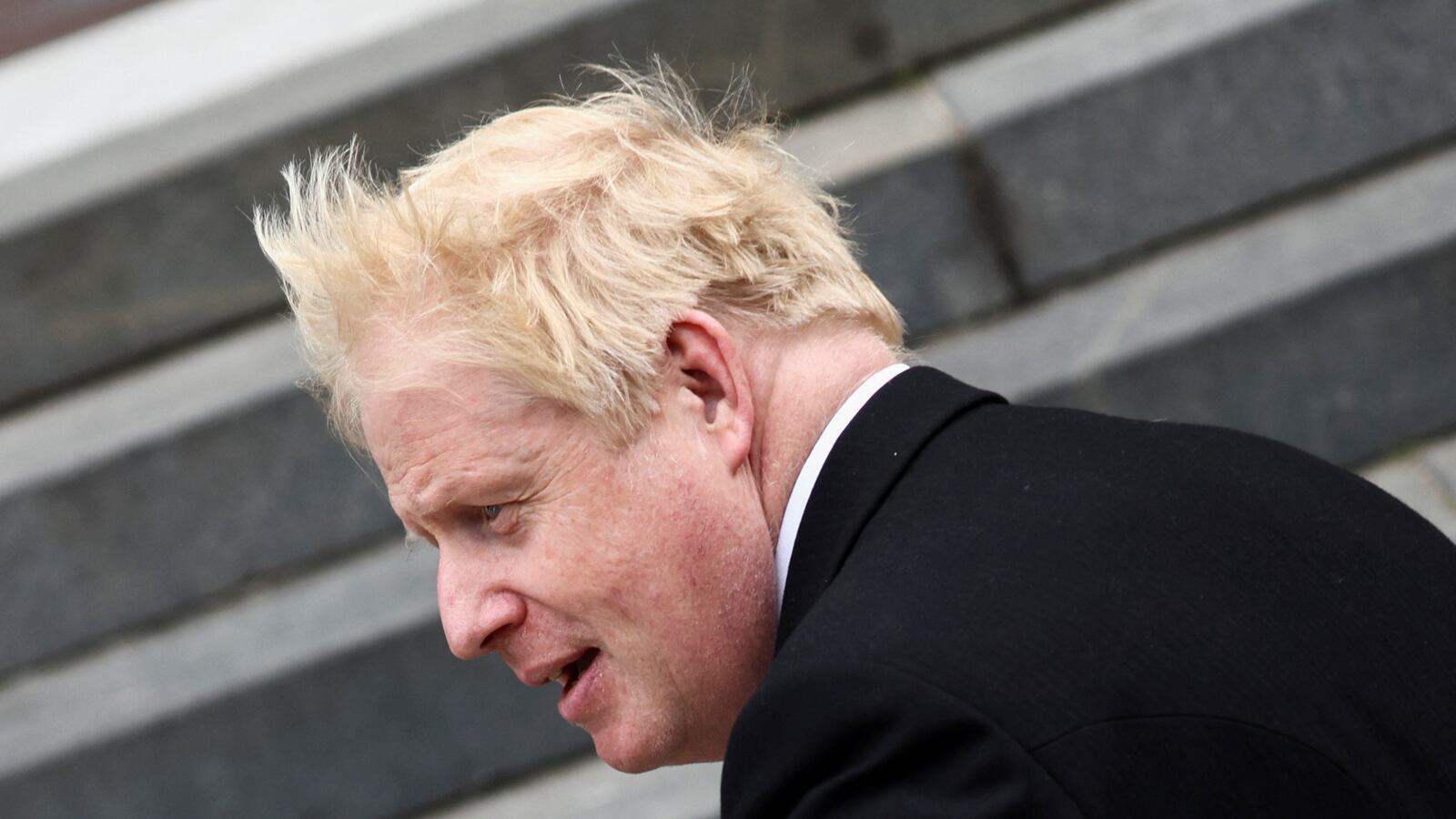The Tory party has always known that Boris Johnson is a nakedly opportunistic liar, a man with no principles except for his own self-advancement. But that didn’t matter, because he was the best election-winner they had.
No longer. On Monday, Johnson’s backbench critics triggered a no-confidence vote that could see him ousted as Conservative Party leader by the end of the day and out of Downing Street by the end of the week.
Under party rules, prime ministers face an automatic confidence vote if 15 percent of the parliamentary party—at the moment that means 54 lawmakers—lodge letters of complaint with the backbench 1992 Committee.
The committee’s chairman, Sir Graham Brady, announced Monday that threshold had been passed—and implied that it had been reached even before Johnson was humiliatingly booed as he arrived at St Paul’s Cathedral for a service to mark Queen Elizabeth’s 70 years on the throne. Brady said some Members of Parliament (MPs) had effectively postdated their letters to ensure no challenge was made that would disrupt the platinum jubilee celebrations.
As Johnson will know as well as anyone, the Tory party is notoriously ruthless when it comes to knifing leaders who are beyond their sell-by date. Johnson himself was informed of the challenge on Sunday; the vote will be held by 8 p.m. local time Monday (3 p.m EST), with the result handed down soon afterwards.
“I think it’s in everyone’s interest to get these things out of the way as quickly and efficiently as possible,” Brady, an ultra-smooth party grandee, told reporters outside the Houses of Parliament.
Officially, Johnson only needs 180 votes, or a simple majority, to survive, which his allies say he is confident of getting. If he does survive, party rules say he is safe for another year.
But the situation is more complicated than that. When Margaret Thatcher faced a leadership challenge in 1990, despite leading the Tories to three huge election victories, she won a clear majority on the first ballot but was still persuaded to resign “for the good of the party.” In the last such confidence vote, Johnson’s predecessor, Theresa May, won by 200 votes to 117, but the fact that one-third of MPs voted against her forced her to lay out a timetable for her departure five months later.
If Johnson’s victory is not convincing, the argument therefore goes, then he would not be able to hang on for long.
Except for one thing, Johnson’s super-talent: He is entirely shameless and will have no compunction about clinging on to office until the party comes to its senses. This, after all, is a prime minister who led the U.K. out of the EU on a lie printed on the side of a bus that Britain would save billions of dollars from doing so, money that would go straight to its National Health Service. In fact, analysts say Brexit has been a disaster for farmers, fishermen, exporters and even the City of London.
This is also a prime minister who blithely partied with his cronies at 10 Downing Street during successive COVID-19 lockdowns, while thousands of ordinary citizens were forbidden even from holding proper funeral services for those killed during the pandemic. It is that scandal, known as “Partygate,” that has proved most damaging and could end Johnson’s career.
According to The Times of London, a memo was circulating among Tory rebels at the weekend listing no fewer than 13 reasons to get rid of Johnson. They included the fact that he and his wife Carrie had been loudly booed at the jubilee service at St. Pauls, although the memo admitted that “tells us nothing that data does not” because polling shows “no social group trusts him, with even 55 per cent of current Conservatives calling him untrustworthy.”
It concluded that the “only way to restore Conservative fortunes to a point where we can win the next general election, is to remove Boris Johnson as prime minister.”







